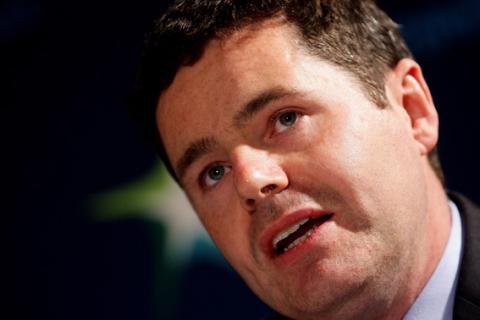Debating default: The 31st Dáil should not be the default Dáil

Growing numbers of commentators and politicians are advocating strategic default as the only available way out of the current crisis. Newly elected Fine Gael TD Paschal Donohoe disagrees.
In a new paper, published here, he argues that a unilateral sovereign default would prolong the fiscal crisis, and that those advocating this strategy have not adequately justified their position.
He sets out a brief history of sovereign default and argues that Ireland is a unique case. The necessity to balance the budget following a default would be exceptionally harsh, requiring a correction in public finances of 11.6% (compared to a 2.5% correction this year), which would destroy the economy. Ireland could be excluded from capital markets for up to four years. With Irish people and institutions holding approximately €14 billion of Irish bonds, burning the bondholders would impose further pain on our own system. These, he says, are unacceptable. Proponents of this "burning" strategy should explain how their approach would avoid these costs.
Excerpts from the paper follow. The entire paper (five pages) can be read or downloaded here and is embedded below.
The consequences of sovereign defaults
Swift budgetary adjustment: When a sovereign defaults, their ability to borrow is hugely and quickly reduced as the government loses access to capital markets. A defaulting government can only spend what it can directly raise through taxation or through significantly lower borrowing.
Exclusion from capital markets: As losses are imposed on bond holders they are wary of supplying credit to defaulting governments for fear of incurring future loss. During the 1980s defaulting countries were excluded from capital markets for an average period of 4 years.
Higher cost of borrowing: In the period after the default the cost of borrowing increases. This is in recognition of the greater risk to the lender of dealing with a defaulting sovereign.
Reputational damage: If a government defaults once, the market expectation is that a future default is always likely. This assessment drives all of the above reactions.
What makes Ireland different?
There are a number of reasons why an Irish default would be unprecedented and unique.
The Irish economy has three factors that are vital here:
Ireland is a member of a single currency zone. An immediate step taken by all modern defaulting economies has been to devalue their currency. This is to provide a quick "stimulus" of export competitiveness. As Ireland does not have a national currency this option is not open to an Irish government.
Ireland is a developed country. All recent academic research focuses on the impact of defaults in emerging economies. The collateral impact of a developed economy default will be larger due to greater integration with the European economy.
The lender of last resort is already present in the Irish state. Defaulting economies make recourse to the IMF. Ireland has already done so with our participation in the IMF/EU support programme. A default involving non-payment to our lenders of last resort would be unprecedented. History offers little guidance as to their reaction.
What would happen if Ireland defaulted?
First, Ireland has no further 'lender of last resort' to whom they can appeal. The likely consequences would therefore be at the harsher end of the response spectrum.
Second, the enforced delivery of a budget surplus would be exceptionally harsh. In 2010 the underlying budget deficit (excluding the costs of the banking recapitalisation) was 11.6% of GDP. This would need to move to either balance or a budget surplus. In a single year this would be a 12 point budget adjustment. To put this in context, recent budgets will reduce the budget deficit by 2.5 points. A unilateral default would force a change of almost 5 times this magnitude in a single year.
Third, based on historical precedent, Ireland could be excluded from capital markets for up to four years. An exclusion of one year would force a budgetary adjustment greater than Ireland has managed in the last three years.
Fourth, recent figures from the Central Bank indicate that Irish residents and institutions own €14 billion of government debt. The belief that a default would push cost purely onto foreign investors ignores the fact that many bond holders are Irish. Further destabilisation of our banking sector would occur.
Finally, studies indicate the presence of a risk premium upon a return to capital markets. A default, followed by capital market exclusion, would then lead to higher costs of borrowing for up to 2 years.
Conclusion
Should the 31st Dáil be the default Dáil? In short, no. A unilateral default upon our commitments to institutions and capital markets would be a unique and high risk experiment in a long history of sovereign defaults. History shows that default in not cost free. In fact, the costs are high and long-lasting. There is no reason to assume an Irish default would be any different.
Far from a step to economic salvation, a unilateral sovereign default would prolong our national stay in financial ruin. Advocates of this strategy have a responsibility to explain why the lessons of default history would not apply to Ireland.
Why the 31st Dáil should not be the default Dáil - Paschal Donohoe TD
